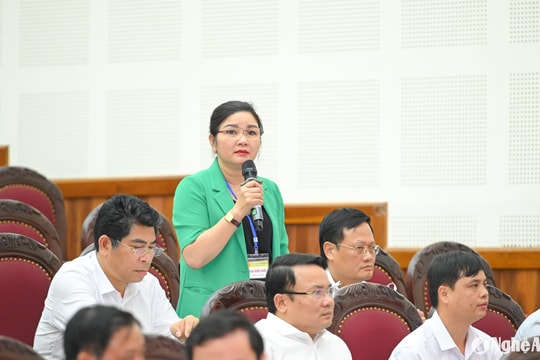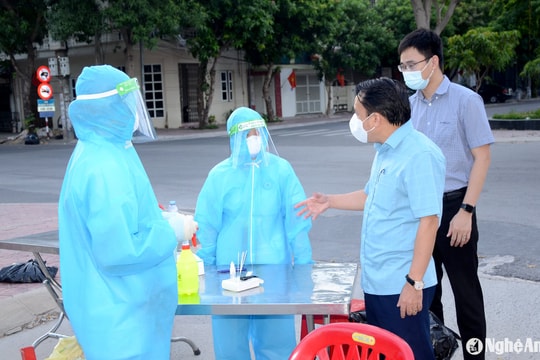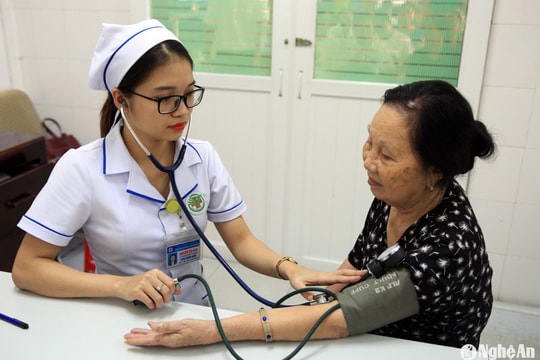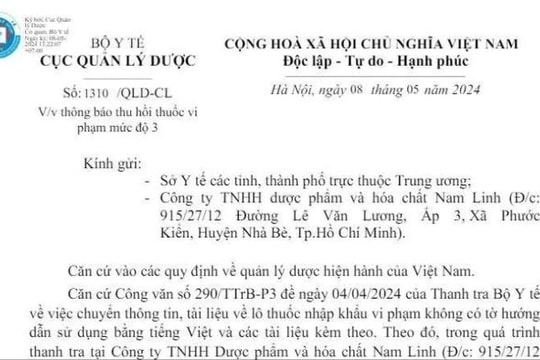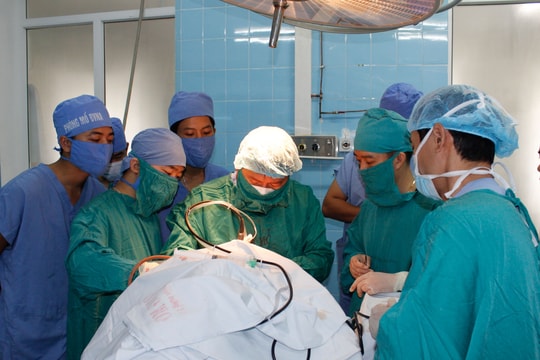Solving the shortage of medicine in public health facilities
At this time, at some medical examination and treatment facilities in the province, there is a local shortage of drugs, affecting treatment and patient rights.
Nghe An Newspaper reporter had an interview with Pharmacist Tran Minh Tue - Deputy Director of Nghe An Department of Health about this issue.
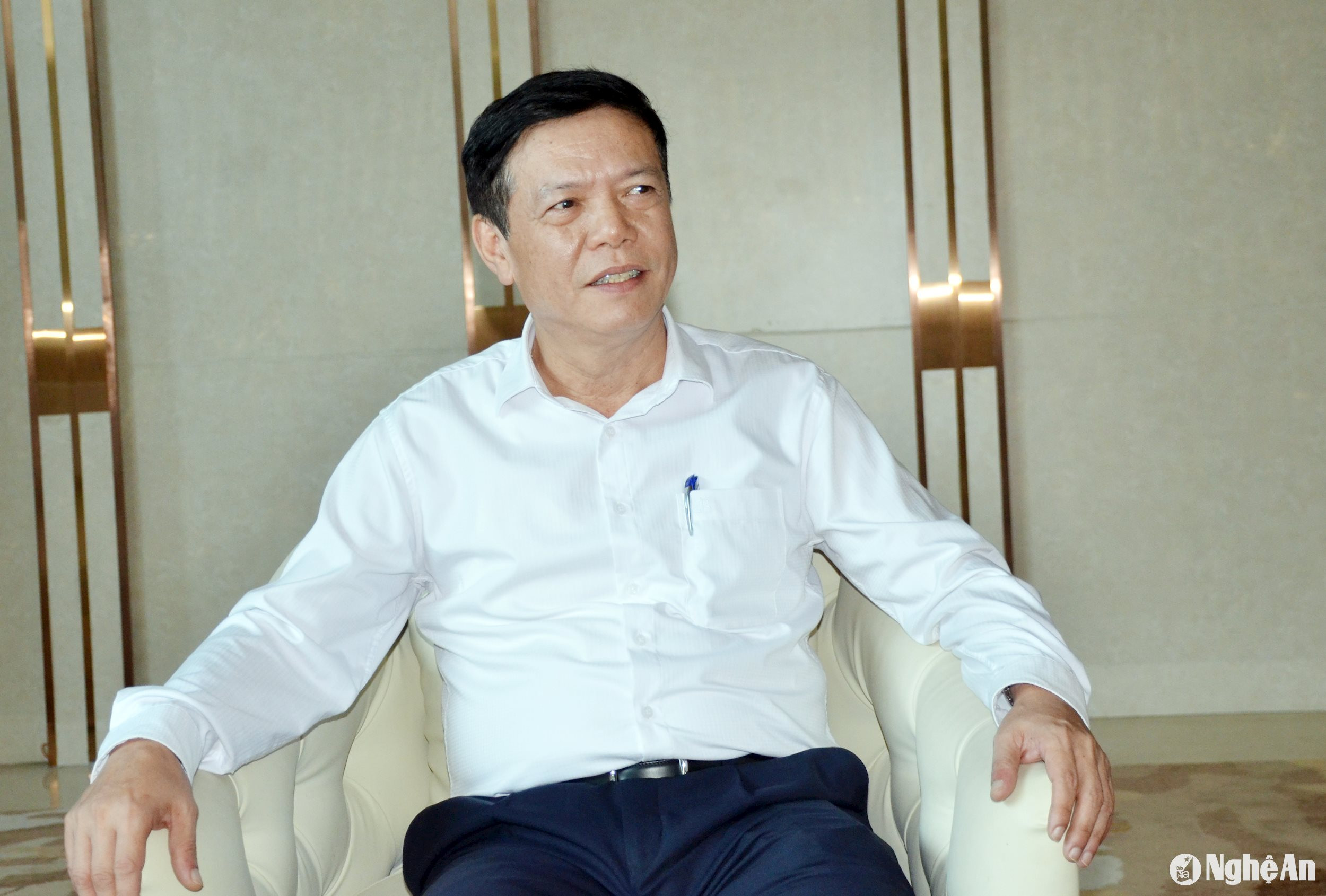
PV:Dear Sir! According to patient feedback, at some public medical examination and treatment facilities in the province, there is a shortage of drugs covered by health insurance, patients have to buy them from outside. What can you say about this situation?
Pharmacist Tran Minh Tue:To ensure the need for treatment drugs in 2024, from 2023, the Department of Health has requested units to actively and proactively develop plans and organize bidding for drug procurement to serve medical examination and treatment. Following the direction, most units have built an estimated demand for drugs, developed plans, and conducted drug procurement bidding. Only 4 units failed to do so in 2023.
The results of procurement and bidding for drugs, chemicals, and medical supplies at all levels are as follows: Implementing centralized procurement at the national level, the Department of Health has compiled and reported proposals for 115 items in the list of drugs for centralized bidding at the national level with a total value of over 362.2 billion VND; as a result, 85 items were selected, with a total value of over 238.5 billion VND (73.9% of the list achieved, 65.6% in value)... Implementing centralized bidding at the provincial level, the Department of Health organized bidding for 232 items, with a total value of nearly 522 billion VND; as a result, 182 items were selected, with a total value of over 429.2 billion VND (78% of the list achieved, 82% in value).
Bidding at medical facilities, facilities in Nghe An province organized a plan to select 266 bid packages including 34,766 items, with a total value of over 3,770 billion VND; the result was 15,437 winning bid items (reaching 78% of the bid), with a total value of over 2,110 billion VND (reaching 84% of the bid value).
Of which, for pharmaceutical products alone, facilities in the province organized bidding for 128 packages, 11,983 items, with a total value of 1,725 billion VND, selecting 9,037 items, with a value of 1,427 billion VND, reaching 75% of the list, 83% of the value.
Bidding results show that there are some pharmaceutical products for treatment in 2024 that have not been selected for contractors due to many reasons. 12 medical facilities in the province have reported a shortage of drugs with a total of 668 missing items, with a total value of over 55 billion VND (equivalent to 2% of the list, 1% of the value compared to the total value of the bidding packages in 2024).

To overcome the above situation, the Department of Health has directed and guided units to actively and proactively continue to deploy necessary measures to comply with regulations, progress, and roadmap for bidding and procurement to serve medical examination and treatment in 2024. Since the beginning of the year, the Department of Health has advised the Provincial People's Committee to approve and issue 12 decisions on procurement of drugs, chemicals, and medical supplies; 17 plans for procurement of drugs, chemicals, and medical supplies. At the same time, the Department has also organized many working sessions with departments, branches, and affiliated units to remove difficulties and obstacles in the process of bidding and procurement of drugs, equipment, and medical supplies.
Despite great efforts, it must be said that currently, at some medical facilities in the province, there is a local shortage of some pharmaceutical products (medicinal materials, medicinal ingredients, some chemicals, special supplies and some specially managed drugs such as addictive drugs, psychotropic drugs...). This has more or less affected the quality of medical examination and treatment and the rights of patients.
PV:Could you elaborate on the reasons for the current unsuccessful bidding and local drug shortage?
Pharmacist Tran Minh Tue:There are many reasons for the limitations and shortcomings in the drug procurement bidding process. Subjectively, it is that some medical facilities are not proactive and flexible in the drug supply planning process. In particular, there is a situation where the human resources participating in bidding are still weak and lacking. Medical staff are reluctant to participate in bidding.
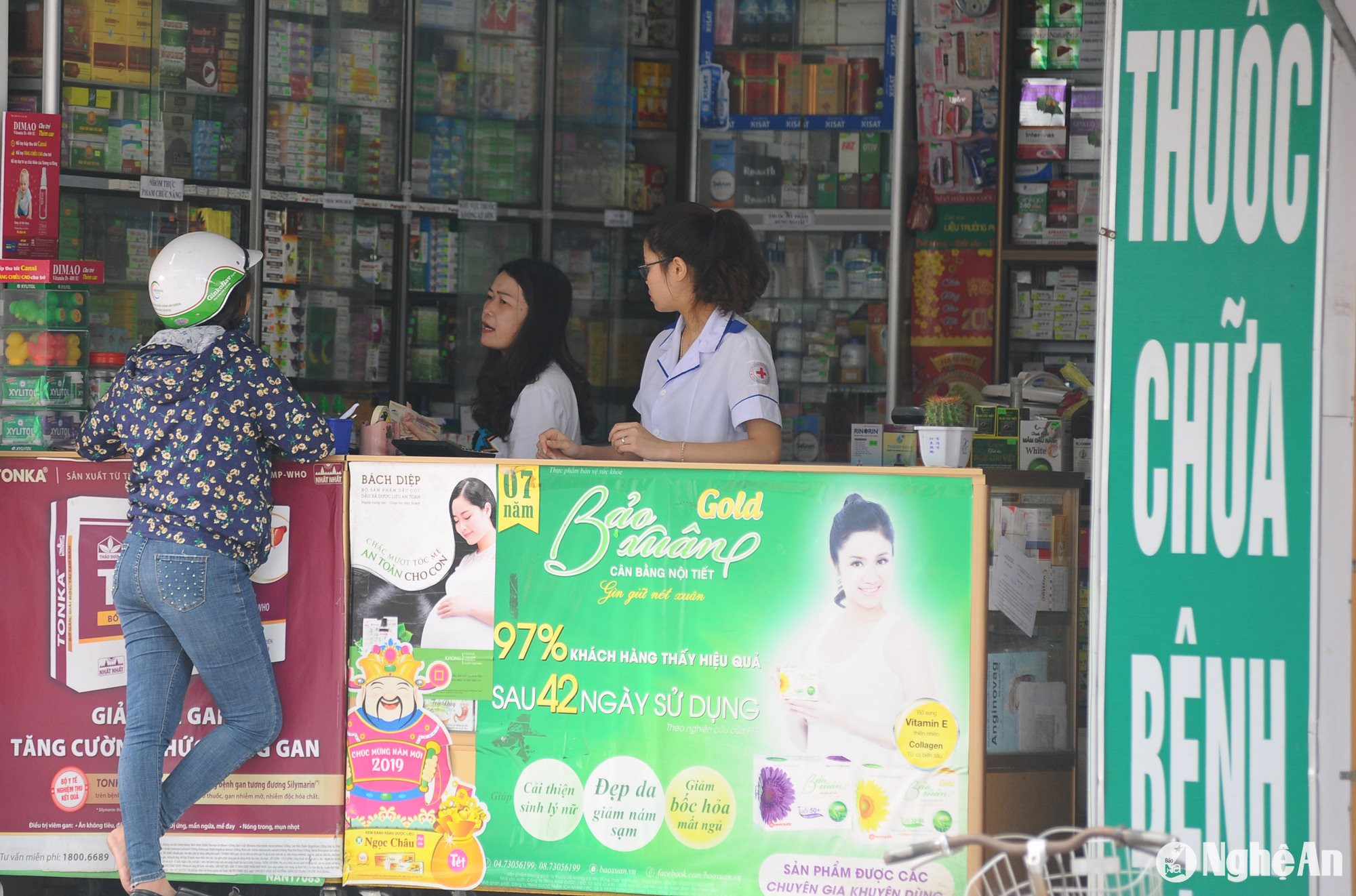
Objectively, as we know, drugs used in medical examination and treatment at public health facilities must go through bidding. During the bidding process, there were some drugs that could not select a contractor (there were always about 10 to 20% of items without a winning bidder) for various reasons, such as the bid prices of the bidders being higher than the planned price. Bidders did not bid for some items that had fluctuated, increasing compared to the planned price. Bidders did not bid for some items with too few planned quantities. And there were even cases where no bidder met the requirements of the bidding documents.
And even when the drugs have won the bid - there are suppliers, the shortage of those drugs can still occur, for the following reasons: Some drugs have broken supply chains globally or in Vietnam, making it impossible for the supplier to supply. Some drugs have expired registration numbers. The supplier does not supply some drugs with too small a planned quantity. The supplier stops supplying drugs when the debt of the medical facility has not been paid and settled.
In addition, the shortage of drugs also comes from the fact that it is very difficult to predict the exact demand for each type of drug. This fluctuation comes from the constantly changing disease pattern. The demand for drugs is not fixed. Meanwhile, the purchase of drugs must go through a very difficult and time-consuming bidding procedure.
In 2024, drug procurement bidding will be carried out in accordance with the Bidding Law No. 22/2023/QH15 (effective from January 1, 2024). However, ministries, departments and branches are slow to issue circulars guiding implementation. For example, on May 17, 2024, the Ministry of Health issued Circular No. 07/2024/TT-BYT regulating drug bidding at public health facilities. Therefore, during that process, health facilities have no basis to conduct additional bidding for missing drugs.
PV:Faced with the current drug shortage, what instructions and support has the Nghe An Department of Health given to medical facilities in bidding for drug procurement?
Pharmacist Tran Minh Tue:It must be said that the Department of Health and medical examination and treatment units have been trying to find and implement many solutions to ensure medicine for medical examination, treatment and health care for patients.
Specifically, to address the risk of drug shortages, the Department of Health has directed units to proactively seek alternative products with similar effects, build a diverse list of purchased goods; proactively re-organize bidding for items that do not win the bid and have no other alternative items; proactively organize contractor selection for items not on the centralized procurement list... For scarce items, units must have a reserve solution to ensure adequate medicine.
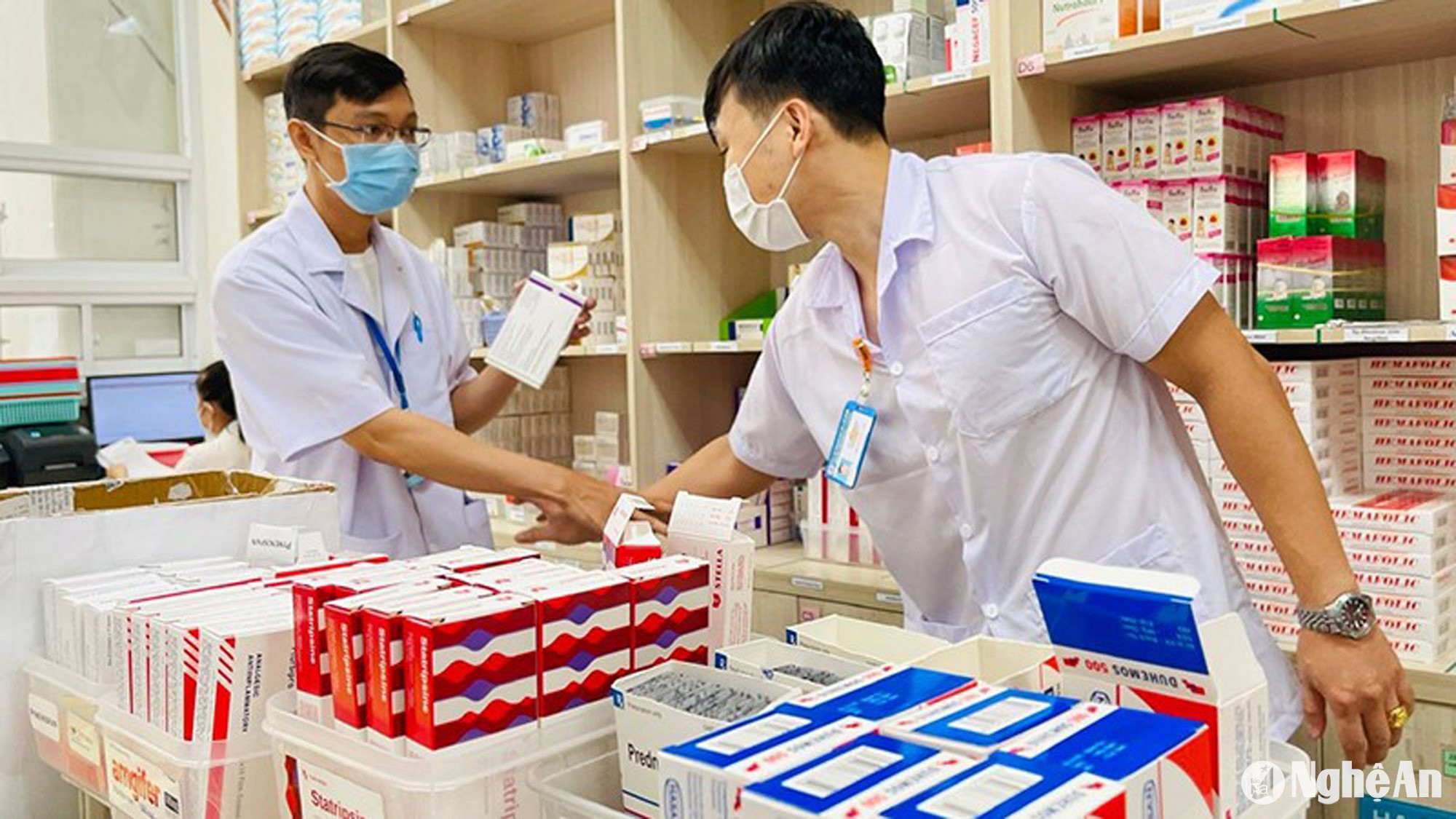
Currently, there are some drugs that are locally lacking because the manufacturer does not produce them, there is a global disruption, and the supplier does not have them to supply (for example, some infusion solutions, Vitamin K), which has caused many difficulties in medical examination and treatment in Nghe An in particular and Vietnam in general. Regarding these items, the Department of Health has directed medical examination and treatment facilities to urgently prepare plans to find similar products in the near future.
In addition to directing units, the Department of Health also constantly updates information and promptly implements the instructions of the National Procurement Center on the organization of bidding and purchasing of drugs on the list of national centralized procurement; constantly improves the bidding organization capacity of medical facilities; regularly contacts medical facilities to promptly grasp information related to difficulties and problems in drug supply and propose solutions; strengthens inspection and supervision of planning and organization of drug procurement bidding of medical units, promptly corrects units that have not done a good job of planning and organizing drug supply, leading to drug shortages at medical facilities.
To support and improve the bidding capacity of medical examination and treatment facilities, the Department of Health has developed a bidding process for drugs, chemicals, and medical supplies; organized guidance and disseminated bidding processes for medical facilities. The Department has also established professional bidding support teams for units without experience in bidding; organized free bidding training sessions for medical examination and treatment units in organizing bidding... thereby, helping units to quickly implement bidding, ensuring compliance with legal regulations.
Currently, the Department of Health requires all medical examination and treatment units to report monthly on the issue of drug supply for patients, including forecasting the types of drugs that are likely to be in short supply due to increased demand for medical examination and treatment. Thereby, the Department of Health will also direct more strongly, support units in developing plans and purchasing in the most timely manner. The Department also requires medical examination and treatment units to discuss, guide and refer patients for treatment if necessary.
Regarding the issue of medical examination and treatment facilities being slow in paying debts, causing contractors to stop supplying, the Department of Health has also provided information. Based on this information, the Department of Health has been and will direct units to contact, discuss, and resolve problems with contractors, balance funding sources to make payments and settle drug purchases within the time specified in the contract, so that contractors can have conditions to supply in the following period.
PV:So what is the fundamental, long-term solution to completely resolve the local drug shortage to ensure the rights of patients, sir?
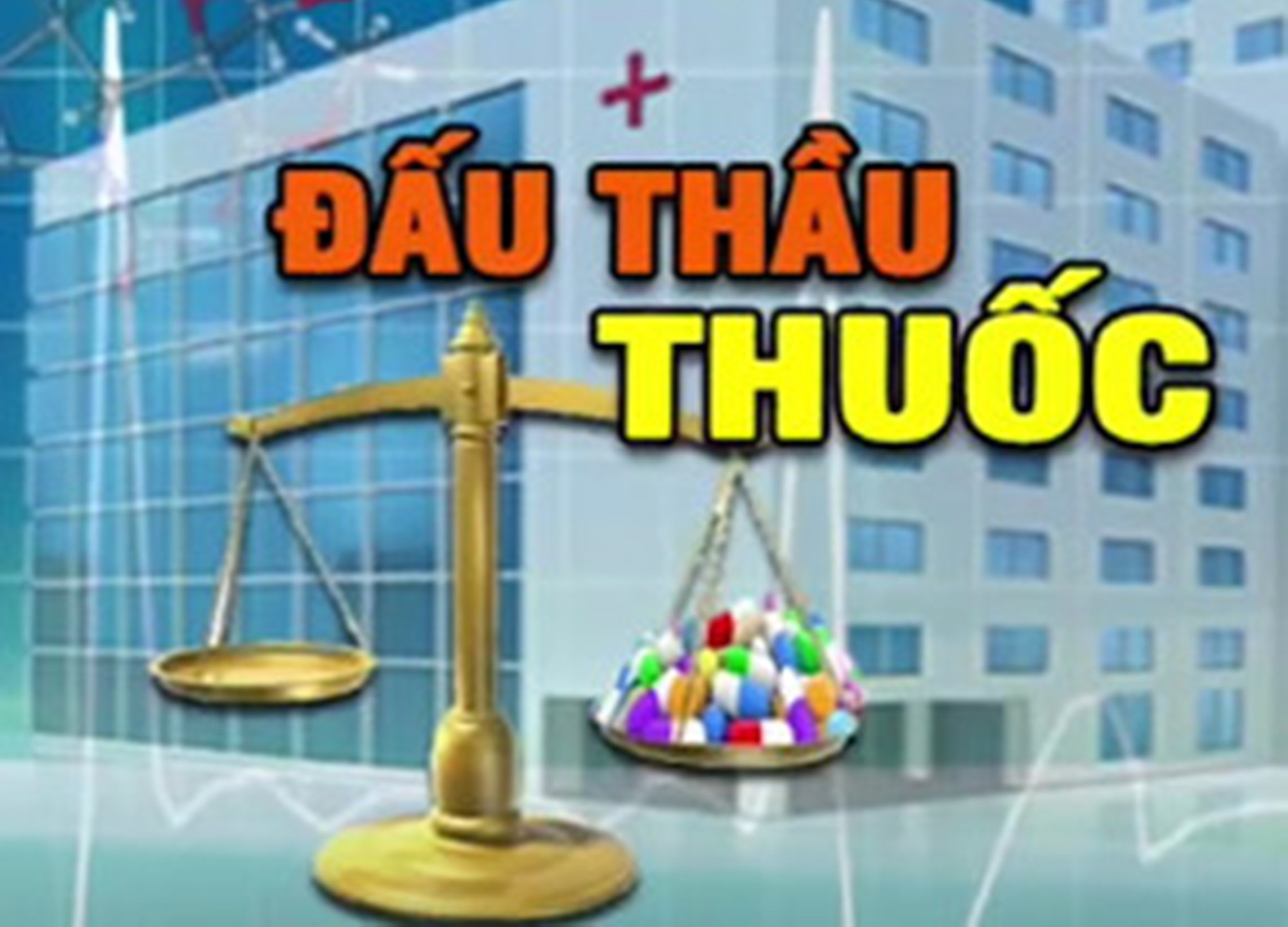
Pharmacist Tran Minh Tue:Currently, the Department of Health has made two recommendations to the Ministry of Health.The first,It is necessary to build a national centralized bidding drug list with a larger number of drug items.Monday,The time for selecting contractors and national bidding is shortened to meet the needs of localities in general and Nghe An in particular.
Nghe An Health Sector is also building a list of drugs for local bidding. After the Provincial People's Committee approves this list, the sector will actively and resolutely organize bidding to ensure drugs for use by units.
Increasing the list of key drugs in national centralized bidding is very important. When the number of these key drugs increases, it means reducing the burden on the units in the bidding organization; limiting the situation of contractors not participating in bidding and supply due to low demand.
PV:Thank you!

